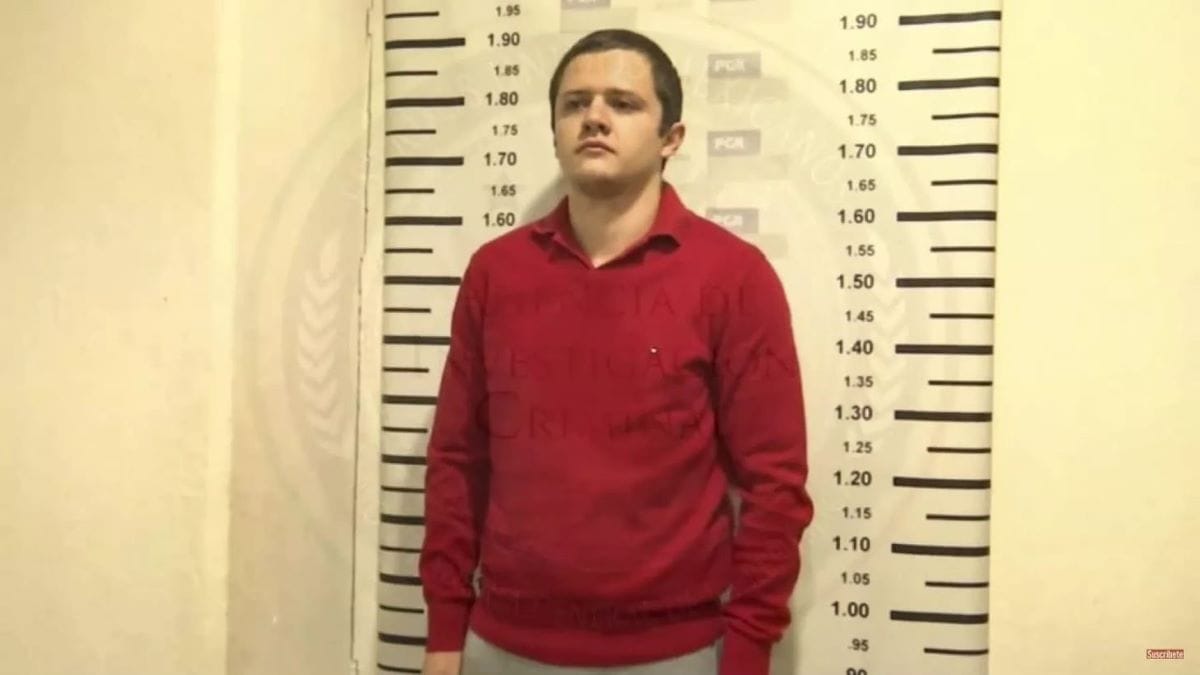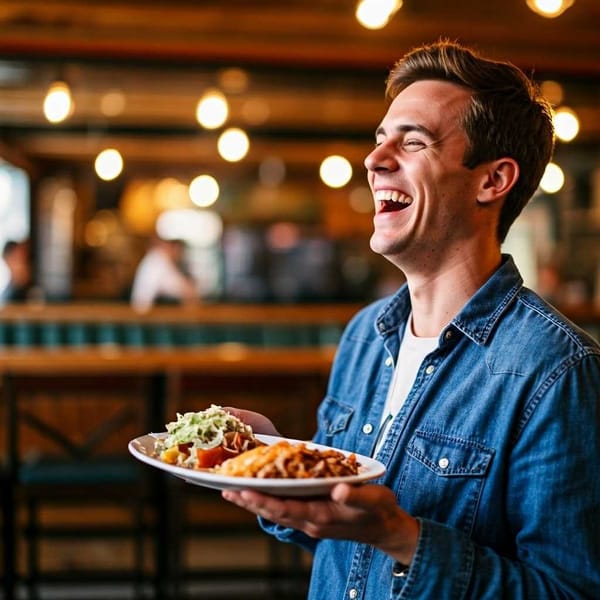How ‘El Menchito’ Orchestrated His Empire’s Descent into Chaos
Rubén Oseguera González, son of CJNG leader Nemesio Oseguera Cervantes, was found guilty in a U.S. court of drug trafficking charges. He was accused of running the Jalisco New Generation Cartel, one of Mexico's most dangerous drug cartels.

In the shadowy corridors of international crime, where myth and reality blur, a name has emerged with both disturbing gravity and grim notoriety: Rubén Oseguera González, or as he's infamously known, El Menchito. This 34-year-old, a curious mixture of violence and cunning, stood as second in command of the Jalisco Nueva Generación Cartel (CJNG), one of Mexico’s most feared criminal enterprises, which grew in power like a malignant vine across borders. His story, a twisted tale of drugs, death, and rocket-propelled ambition, unfolded this Friday in a U.S. court—cementing his role as the "prince" of a criminal empire whose reach spanned continents.
Born into privilege—the son of CJNG’s elusive boss, Nemesio Oseguera Cervantes, El Mencho—Oseguera González was predestined for an upbringing far removed from playgrounds or youthful mischief. Instead, he was baptized into a world of cutthroat leadership and backroom deals. With dual U.S.-Mexican nationality, El Menchito navigated both legal and underworld arenas like a seasoned diplomat—one whose negotiations just happened to involve narcotics, firearms, and horrific violence.
El Menchito’s ascent within the CJNG was as swift as it was brutal. By the time he was in his early twenties, he had already become the second most powerful figure in the cartel. His résumé? A staggering inventory of illicit dealings: overseeing the production of millions of pounds of methamphetamine and trafficking cocaine by the ton. Yet, it wasn’t just drugs that defined this young prince’s ascent. According to prosecutors, he wielded violence as skillfully as any of the weapons his cartel trafficked—often using it to carve his way through any opposition, whether in Mexico or the United States.
But it was the spectacular details of his criminal orchestration that shocked even seasoned courtroom observers. Evidence at his trial painted El Menchito as a man whose ruthlessness knew no bounds. Take, for instance, his reported involvement in the 2015 downing of a Mexican military helicopter, an incident straight out of a Hollywood thriller. On orders from Oseguera himself, cartel operatives used a rocket-propelled grenade to take out the aircraft, killing nine soldiers. The initials “JR”—Menchito’s alias—were later found engraved on a belt at the crash site, a chilling calling card of the prince’s handiwork.
A Legacy of Drugs and Death
At the heart of this trial, however, was the indictment of Oseguera’s larger role in pioneering the fentanyl trade—ushering in a deadly epidemic that has since ravaged the United States. As prosecutors revealed, between 2012 and 2015, Oseguera orchestrated the manufacturing of more than three million pounds of methamphetamine in Mexico, but his criminal ingenuity didn’t stop there. In 2013, with an eye toward new and darker opportunities, Oseguera saw the potential for counterfeit oxycodone pills laced with fentanyl—a move that would precede a tidal wave of overdose deaths across the U.S.
El Menchito’s innovations in drug production were not mere business decisions. They marked a transition in the cartel’s power, steering CJNG from being just another ruthless Mexican cartel into a global drug syndicate. By strategically leveraging fentanyl, a substance far more potent and lethal than traditional narcotics, Menchito helped fuel an addiction crisis that now claims 250 lives daily in the United States.
As his trial unfolded, a damning portrait emerged: the prince was not content to merely inherit his father’s empire. He was determined to reshape it into something more sinister, more expansive, and infinitely more profitable. Prosecutors alleged that he not only oversaw the mass production of narcotics but did so with calculated brutality, killing those who crossed him without hesitation. In one shocking revelation, it was reported that Oseguera personally executed five men in the U.S. over unpaid drug debts, a brazen act that underscored the cartel’s far-reaching terror.
A Pyrrhic Victory for Justice
In the end, after hearing testimony from six cooperating witnesses and reviewing an array of encrypted BlackBerry messages—where El Menchito even bickered about the purity of his cocaine with an uncle—the jury found him guilty of the two most severe charges: conspiracy to import and distribute methamphetamine and cocaine, and using firearms in furtherance of a drug trafficking conspiracy. It was a resounding victory for the U.S. Department of Justice, which has long pursued the leaders of CJNG. Attorney General Merrick Garland, not one to mince words, called the sentencing a significant blow to the cartel, but tempered his victory lap with a somber acknowledgment of the many lives lost due to El Menchito’s actions.
Still, as El Menchito awaits his sentencing in January, the story feels far from over. His father, El Mencho, remains at large—a specter casting a long, ominous shadow over Mexico’s ongoing drug war. The DOJ continues to dangle a $10 million reward for any information leading to El Mencho’s capture. The elder Oseguera’s ability to evade law enforcement for so long speaks to the staggering influence and reach that this family wields.
The downfall of El Menchito may mark a symbolic victory for justice, but it also raises unsettling questions. Can such a well-oiled and deeply entrenched empire truly be dismantled by the imprisonment of its second-in-command? Or will another heir rise to take his place, just as El Menchito did before him?







Menchito had his nose done and lived a low profile. Credit: Agencies
As we examine Rubén Oseguera González, it becomes evident that his story—much like his father’s empire—is one written in blood and tragedy. Oseguera’s transformation from son to criminal prince offers a chilling reminder of the human cost behind every headline about the war on drugs. In the end, El Menchito wasn’t just a kingpin’s son. He was a symbol of a generation born into violence, raised in power, and ultimately destroyed by the very empire they sought to command.




